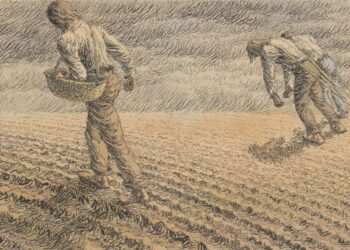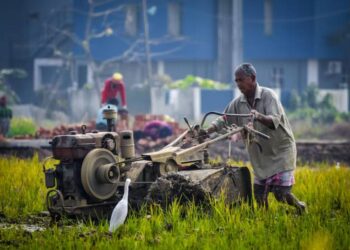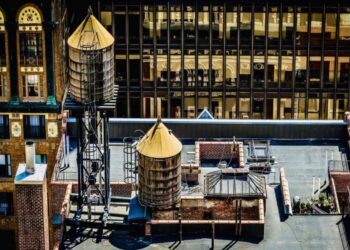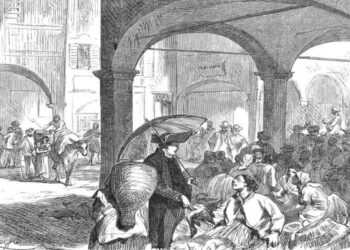Several American cities stand out regarding inclusivity and vibrant LGBTQ+ communities. But the question remains: “What’s the gayest city in America?” This article delves into various factors contributing to a city’s LGBTQ+ friendliness, including social acceptance, legal protections, cultural events, and atmosphere. By examining these elements, we aim to identify the top contender for the title of the gayest city in America and provide insights into what makes these cities unique and welcoming to the LGBTQ+ community.
What’s the gayest city in America?
While many cities boast vibrant LGBTQ+ communities, San Francisco often takes the top spot due to its historical significance, inclusive atmosphere, and extensive array of LGBTQ+ events and resources. Other notable mentions include New York City, Los Angeles, and Portland, each offering unique environments that celebrate diversity and acceptance.
What Makes a City LGBTQ+ Friendly?
Identifying the gayest city in America involves considering various factors that contribute to a welcoming environment for the LGBTQ+ community. These include social acceptance, legal protections, cultural events, and community resources.
Social acceptance plays a crucial role in defining a city’s LGBTQ+ friendliness. Cities with a high level of tolerance and acceptance towards LGBTQ+ individuals foster a sense of belonging and safety. The city’s policies, public attitudes, and overall cultural climate often reflect this acceptance.
Legal protections are another vital aspect. Cities with comprehensive anti-discrimination laws and protections for LGBTQ+ individuals ensure that residents can live without fear of prejudice or unequal treatment. These laws often cover employment, housing, and public accommodations.
Cultural events and activities also significantly contribute to a city’s LGBTQ+ appeal. Annual pride parades, LGBTQ+ film festivals, and other events celebrate diversity and provide opportunities for community members to connect and express themselves.
Community resources, such as LGBTQ+ centers, support groups, and health services, are essential for fostering a supportive environment. These resources offer vital services and create spaces where LGBTQ+ individuals can seek assistance and build connections.
Which City Tops the List? An In-Depth Look at San Francisco
Historical Significance
San Francisco is often regarded as the gayest city in America due to its historical significance in the LGBTQ+ rights movement. The city has been at the forefront of LGBTQ+ activism since the 1960s, with landmark events such as the Compton’s Cafeteria Riot and the establishment of the Castro District.
Vibrant LGBTQ+ Community
The Castro District is a well-known LGBTQ+ neighborhood, renowned for its colorful streets, LGBTQ+-owned businesses, and inclusive atmosphere. It serves as a hub for both residents and visitors, offering a welcoming environment for all.
Annual Events and Festivals
San Francisco hosts a multitude of LGBTQ+ events, including the iconic San Francisco Pride Parade, one of the largest and most well-known pride celebrations in the world. Other notable events include the Frameline Film Festival and the Folsom Street Fair.
Legal Protections and Support Services
The city boasts comprehensive legal protections for LGBTQ+ individuals, including anti-discrimination laws and support services. Numerous LGBTQ+ organizations, such as the San Francisco LGBT Center, provide essential resources and advocacy.
Inclusive Atmosphere
San Francisco’s overall atmosphere is one of acceptance and inclusivity. The city’s progressive values and diverse population create an environment where LGBTQ+ individuals can thrive.
What Other Cities Are LGBTQ+ Havens?
1. New York City: The Birthplace of Modern LGBTQ+ Rights
Historical Significance: New York City is home to the Stonewall Riots, a pivotal event in the LGBTQ+ rights movement.
Diverse Neighborhoods: Areas such as Chelsea and Greenwich Village are known for their vibrant LGBTQ+ communities.
Major Events: NYC Pride and the New York Queer Film Festival are major annual events celebrating LGBTQ+ culture.
2. Los Angeles: Hollywood’s LGBTQ+ Capital
West Hollywood: This neighborhood is a prominent LGBTQ+ area with numerous LGBTQ+-owned businesses and cultural landmarks.
LGBTQ+ Media Presence: Los Angeles has a significant impact on LGBTQ+ representation in media and entertainment.
Annual Celebrations: Events like LA Pride and Outfest attract large crowds and celebrate diversity.
3. Portland: The Pacific Northwest’s LGBTQ+ Gem
Progressive Values: Portland is known for its inclusive policies and progressive attitudes towards LGBTQ+ rights.
Community Resources: The city boasts numerous LGBTQ+ support services and community centers.
Festivals and Parades: The Portland Pride Waterfront Festival and Parade are key events in the city’s LGBTQ+ calendar.
4. Chicago: The Heart of the Midwest LGBTQ+ Scene
Boystown: This neighborhood is one of the most famous LGBTQ+ areas in the Midwest, offering a welcoming atmosphere.
Support Services: Chicago provides extensive support services for the LGBTQ+ community, including health and wellness programs.
Key Events: Chicago Pride Fest and the Chicago International LGBTQ+ Film Festival are major highlights.
How Do Smaller Cities and Towns Compare?
Exploring the LGBTQ+ friendliness of smaller cities and towns provides a broader perspective on inclusivity across America.
Provincetown, MA: A Historic LGBTQ+ Retreat
Popular Destination: Provincetown is renowned as a vacation spot for LGBTQ+ individuals, offering a rich history of acceptance and celebration.
Community Events: The town hosts numerous LGBTQ+ events, including the annual Provincetown Carnival.
Palm Springs, CA: Desert Oasis for the LGBTQ+ Community
Large LGBTQ+ Population: Palm Springs has a significant LGBTQ+ community, with many residents and visitors flocking to the city.
Festivals and Events: The city hosts events such as Palm Springs Pride and the White Party, attracting large crowds.
Asheville, NC: The Progressive Southern City
Welcoming Atmosphere: Asheville is known for its progressive values and growing LGBTQ+ community.
Supportive Community: The city offers various resources and support groups for LGBTQ+ individuals.
Cultural Scene: Asheville boasts a vibrant cultural scene with events and festivals celebrating diversity.
What Are the Key Factors for LGBTQ+ Residents When Choosing a City?
Social Acceptance Cities with high levels of social acceptance create safer and more welcoming environments for LGBTQ+ individuals. Public attitudes and community support are crucial.
Legal Protections Comprehensive legal protections against discrimination ensure that LGBTQ+ residents can live without fear of unequal treatment.
Community Resources Access to LGBTQ+ centers, support groups, and health services is essential for fostering a supportive and inclusive community.
Cultural and Social Opportunities A vibrant cultural scene with events, festivals, and LGBTQ+-owned businesses provides opportunities for connection and self-expression.
Conclusion:
Determining the gayest city in America involves considering various factors, including historical significance, social acceptance, legal protections, and community resources. While San Francisco often tops the list due to its rich history and vibrant LGBTQ+ community, other cities like New York, Los Angeles, and Portland also offer welcoming environments. Ultimately, the best city for LGBTQ+ individuals depends on personal preferences and priorities.
FAQs
- Why is San Francisco considered the gayest city in America?
San Francisco’s historical significance, vibrant LGBTQ+ community, and extensive legal protections contribute to its reputation.
- What other cities are known for their LGBTQ+ friendliness?
New York City, Los Angeles, Portland, and Chicago are also renowned for their welcoming environments and active LGBTQ+ communities.
- How do smaller cities compare in terms of LGBTQ+ friendliness?
Smaller cities like Provincetown, Palm Springs, and Asheville offer inclusive atmospheres and strong community support.
- What factors should LGBTQ+ individuals consider when choosing a city?
Social acceptance, legal protections, community resources, and cultural opportunities are key factors to consider.
- Are there any specific neighborhoods known for being LGBTQ+ friendly?
Yes, neighborhoods like the Castro District in San Francisco, Chelsea in New York City, and West Hollywood in Los Angeles are well-known LGBTQ+ hubs.







